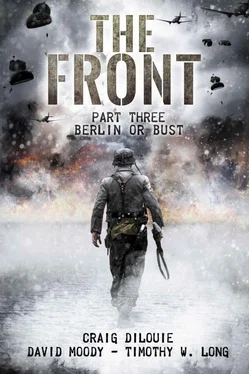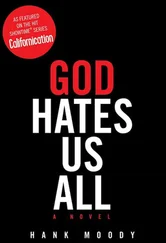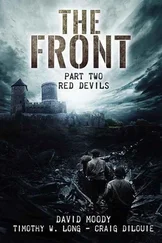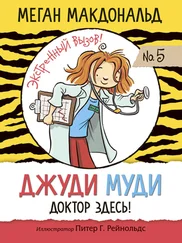The last stragglers loaded up. Strident calls sounded down the line. The convoy rolled out to join a line of vehicles rumbling toward the airfield. The entire regiment was on the move, undertaking an operation so important it warranted an extraordinary amount of vehicles and fuel.
All for a plane ride to England.
The United Kingdom. The great enemy fortress, the unsinkable aircraft carrier, home to men with stiff upper lips and tea and biscuits and the fat clown Winston Churchill. Just across the channel from Europe but as remote as the moon.
It still felt to Wolff like he was dreaming.
Distinguished by their steel gorgets hanging around their necks, Feldgendarmerie had cordoned off Genoa’s narrow streets and waved the trucks along. At an intersection, Wolff glimpsed the old terraced lighthouse, soaring over a hundred meters into the sky at the waterfront. The column was moving east. That meant no travel by flying boat, the water having served as Genoa’s airport since 1930. Instead, the jägers were going to the Luftwaffe airfield northeast of the city.
The vehicles ground to a halt alongside the airstrip, where a large collection of old up-gunned Junkers 52 transport planes and a few decrepit Heinkel 111s lay parked. A handful of Focke-Wulf 190 and obsolete Stuka fighters circled the airfield, filling the air with propeller buzz.
Werner’s Eagle Company would be the first to board the old transports. Reiser was already barking at the platoon to dismount the trucks and get moving. Wolff gripped his FG42, a semi-automatic rifle built specifically for Luftwaffe parachute units, and hopped down from the truck bed onto the cold dirt. The men began to load weapons containers onto their assigned plane. The Auntie Jus’ propellers cranked to life, the big transports straining against their wheel chocks.
A motorcycle with a sidecar roared across the airfield and came to skidding halt. An SS grenadier and officer dismounted. The officer began to shout at one of the squads still sitting on the back of their assigned truck.
“What is happening, Herr Oberfeldwebel ?” Muller shouted over the propeller hum.
Wolff tapped his head. “ Dachshaden. ” Roof damage. In other words, in his view, the SS weren’t quite right in the head.
He wouldn’t abide any criticism of the Fallschirmjäger . SS, however, were fair game in his book.
Steiner said, “I should have given them the address of a real brothel.”
The grenadier raised his StG 44, a big, ugly-looking rifle, and the paratroopers raised their hands in surrender.
Wolff growled, “What the hell is this?”
Leutnant Reiser marched over to the SS officer and started a screaming match.
At the end of the airfield, more vehicles arrived loaded with SS troops. The grenadiers dismounted and aimed their weapons at the Battle Axe, the last company in line, veterans of Crete and the Gran Sasso raid.
The rest of the squad gathered behind Wolff.
“Is it me, or does this whole thing stink?” Weber said.
“Like a shithouse, Kugelfest,” Schulte told him. “Obviously.”
Wolff strained to listen but only caught snatches of the argument. The SS didn’t want the Fallschirm to board the planes and leave. Reiser intended to obey his orders unless an appropriate higher authority countermanded them.
Gunfire popped along the edge of the airfield. The crackle quickened to a steady roar as Battle Axe and the SS blazed away at each other point blank with everything they had.
Muller paled. “What’s going on, Herr Oberfeldwebel ?”
“ Bürgerkrieg ,” Schulte said. Civil war.
Wolff looked to Reiser for orders. The lieutenant was still shouting at the hawk-faced SS officer while the grenadier aimed his StG 44 at the paras.
Then Reiser ceased his gesticulating and went quiet as the gunfire rose in volume at the end of the airfield. The SS officer stopped shouting as well but kept talking, still making his case for the paratroopers to submit. He stabbed his finger at nearest plane and then swept his hand in a cutting gesture. Do not board the planes.
Reiser nodded once, twice.
Then he pulled out his Luger and shot the officer in the face with a loud bang. The grenadier wheeled in time to take three slugs in the chest.
The two SS men crumpled to the airstrip at the same time.
“Christ!” Steiner yelled.
Even while deeply shocked by what he’d just witnessed, Wolff was impressed. He couldn’t hit a Sherman tank from five meters with his Luger. The lieutenant was a dead-eye shot.
The squad stiffened to fearful attention as Hauptmann Werner stomped onto the scene and took in the two dead men.
The company commander said, “ Leutnant , lead your men onto your planes.”
Reiser holstered his smoking pistol and clicked his heels. “ Zu befehl, Herr Hauptmann! ” By your command, Captain!
The Stukas fell out of the sky to plunge into a screaming dive. Tons of blasted dirt sprayed above SS positions. An Sd Kfz armored special purpose vehicle fireballed into the air and crashed back down in a flaming wreck.
The paratroopers didn’t need orders to move. They shouldered their kit and rushed to board the planes as machine-gun tracers flashed in the distance. Wolff climbed into the door aft of the wing and buckled himself in along with seventeen other troopers. The cabin smelled like sweat and old canvas.
Reiser screamed at the terrified pilots. “Get us in the air now!”
The lieutenant staggered as the plane lurched forward. The propeller hum raised in pitch as it built up speed. A bullet cracked off the fuselage with a loud ricochet that made the men flinch. Muller prayed out loud.
Wolff brooded as the plane lunged into the air and veered north toward the Alps. The Allies capitulating, the hasty transfer to England, previously unthinkable fighting between SS and Luftwaffe units. None of it added up.
Somebody was lying to him.
It wouldn’t be the first, but this time, the stakes possibly involved treason.
Muller stopped praying, though he kept his hands clasped in front of his chest just in case he needed to make a quick return.
The Ju-52 shot up four meters per second until it reached its cruising altitude of 5,000 meters. There, the three-engine plane bounced on air pockets, its windows offering a glimpse of the other transports falling into formation before they entered a gray cloudbank.
The Luftwaffe and the SS were fighting each other. It didn’t matter who was right or wrong. The SS was the military arm of the Nazi Party, which ran everything. Along with his comrades, Muller would likely be branded a traitor.
Traitors were shot, no questions asked.
He wanted to know why, but the paratroopers knew as much as he did, which was to say, nothing. The whole world, it seemed, was dachshaden .
Home now felt farther away than ever.
He’d grown up in Berlin during the hard times, the hungry times. One of three men out of work. Everything cost too much to afford. An egg was 300 marks, a pound of coffee 30,000. His father relied on barter to scrape a living. Political parties fought in the streets. Everybody criticized the government, which had sold out the country to France and England. The communists burned the Reichstag . Muller grew up understanding the world was topsy-turvy, everybody was against Germany, and Germany needed to defend itself.
Then things got better. No more socialist marches under their red banners, no more street fights. Men found work, including his father, who joined the Nazi Party and took a job at a ministry. After his Jewish best friend disappeared without a word, leaving young Muller to believe the boy’s parents had uprooted, he made new friends during his compulsory stint in the Hitler Youth, where he learned about Nazi ideology. He found it simple enough if a bit silly, though of course he kept this to himself. He did, however, enjoy the uniforms, songs, and hiking trips. Every boy his age wanted to be in a club, and the Youth was the ultimate. His parents took him to Norway on vacation, a benefit of the government’s Strength through Joy program.
Читать дальше











